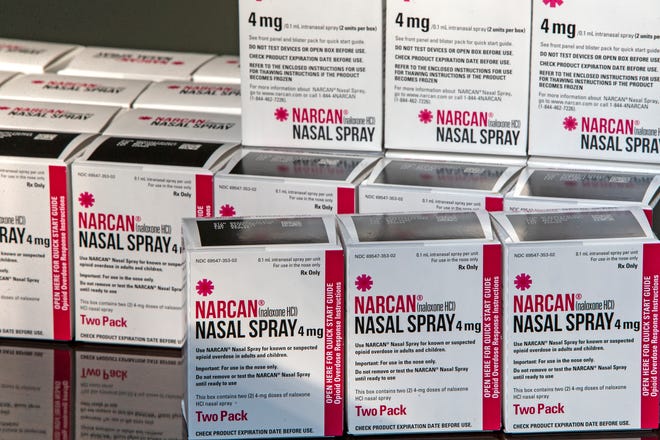- In addition to the monetary reparations, Monday’s settlement requires these pharmacies to monitor the opioid prescriptions that they fill more vigilantly.
- While deals were eventually reached, Delaware Attorney General Jennings said none of the companies “readily sat there at the table admitting to the major role that they played.”
- Delaware consistently has one of the highest overdose rates nationwide, with last month recording the most fatal overdoses in state history, according to the state Department of Health and Social Ser
Delaware will receive $43.6 million from a new multi-state settlement with CVS and Walgreens for their role in the opioid crisis, the Delaware Department of Justice announced this week, bringing the state’s Prescription Opioid Settlement Distribution Fund to over $250 million.
Court rulings have shown that pharmacies like CVS and Walgreens overfilled painkiller prescriptions and failed to report suspicious prescriptions, allowing for the widespread abuse of opioids. In addition to the monetary reparations, Monday’s settlement requires these pharmacies to monitor the opioid prescriptions that they fill more vigilantly.
Still, agreeing to a settlement is not the same as accepting responsibility. Companies involved in litigation — especially high-profile manufacturers like Purdue Pharma — continue to skirt around actually acknowledging their role in the opioid crisis.
MORE:What a fentanyl court sentencing and new outreach campaign tell us about the opioid crisis
Delaware Attorney General Kathy Jennings, who has been involved in many of the major negotiations, said that coming to settlement agreements with these companies is “tough.” And while deals were eventually reached, Jennings said none of the companies “readily sat there at the table admitting to the major role that they played.”
OPIOID MANUFACTURERS:Why the University of Delaware still takes money from the family behind OxyContin
“There is frankly no amount of money that can fill the void that’s left behind when we lose loved ones to this crisis,” Jennings said. “No family who lost a loved one ever is going to feel that it’s enough, because it’s not.”
Delaware consistently has one of the highest overdose rates nationwide, with last month recording the most fatal overdoses in state history, according to Delaware’s Department of Health and Social Services. With the widespread presence of fentanyl and introduction of the even more powerful tranquilizer xylazine, local organizations and activists are more in need of resources than ever. It’s part of why Jennings said she wants to begin distributing the settlement funds as soon as possible.
OVERDOSES:Delaware’s overdose deaths are rising in Black community, downstate. What the data shows
“It’s important for us to make sure that every dollar that gets spent is saving a life,” Jennings said.
Jennings oversees the commission in charge of distributing opioid settlement funds to local organizations alongside Lt. Gov. Bethany Hall-Long. The first phase of grant applications opened at the end of November and will remain open through the end of the year. Jennings said approved organizations could receive their requested money as early as the first quarter of 2023.

RELATED:From clean needles to free naloxone, Delaware outreach groups reducing harm of addiction
The grants are open to organizations that are non-profits, faith-based, for-profit or governmental. In order to qualify, organizations must commit to at least one of a series of approved uses. This includes Narcan training and distribution, treatment services, recovery housing and public education campaigns geared toward preventing opioid abuse.
Organizations can receive up to $100,000 from the commission, with more funds becoming available next year. Applications will reopen in the future as the distribution process continues.
How to find help
Delaware Hope Line: 833-9-HOPEDE for free 24/7 counseling, coaching and support, as well as links to mental health, addiction and crisis services. Resources can also be found on the Help is Here website.
Suicide and Crisis Lifeline: 988
SAMHSA National Helpline: 800-662-HELP (4357) for free 24/7 substance abuse disorder treatment referral services. Treatment service locators are also available online at findtreatment.samhsa.gov or via text message by sending your ZIP code to 435748.
Send story tips or ideas to Hannah Edelman at hedelman@delawareonline.com. For more reporting, follow them on Twitter at @h_edelman.